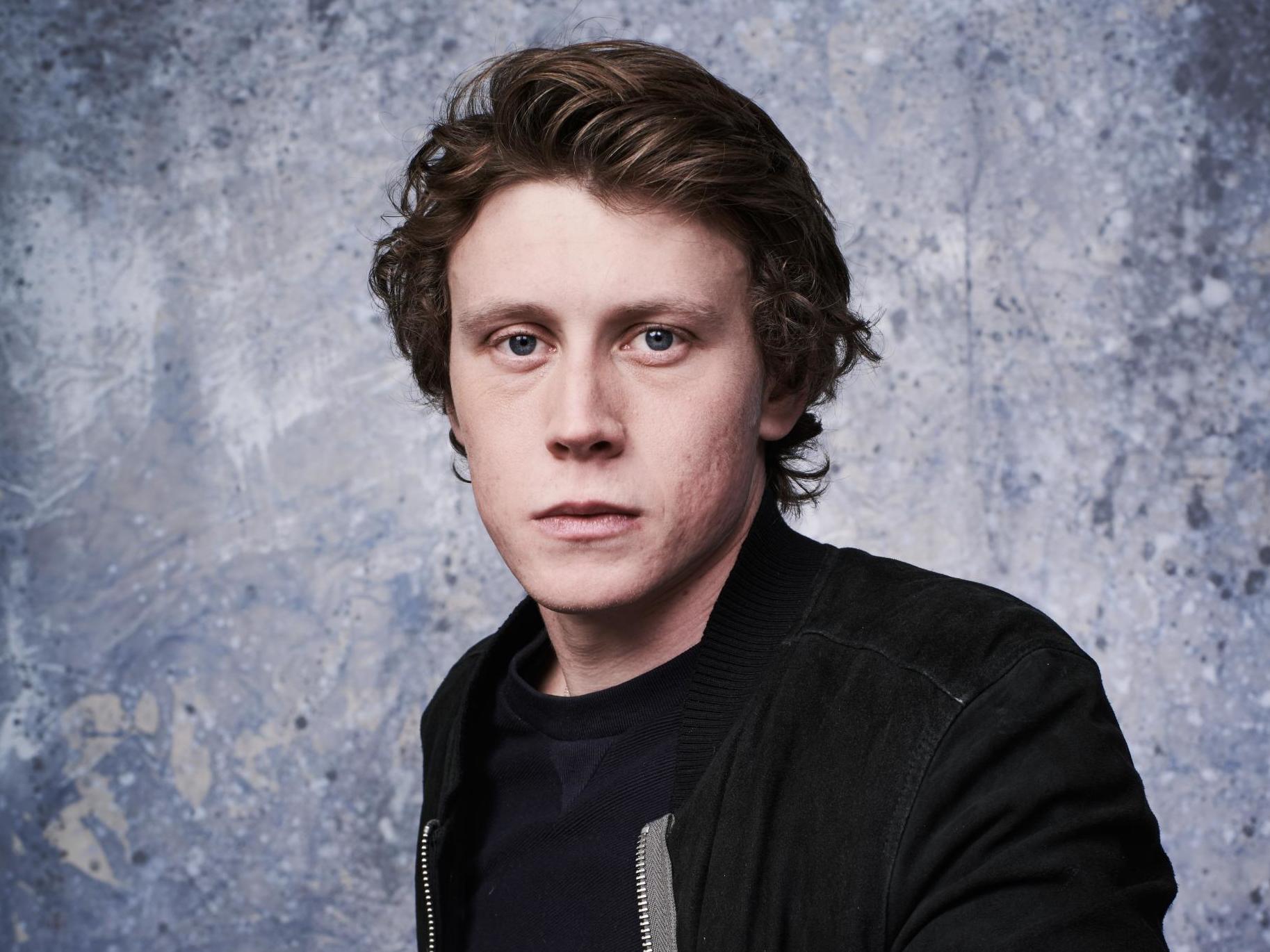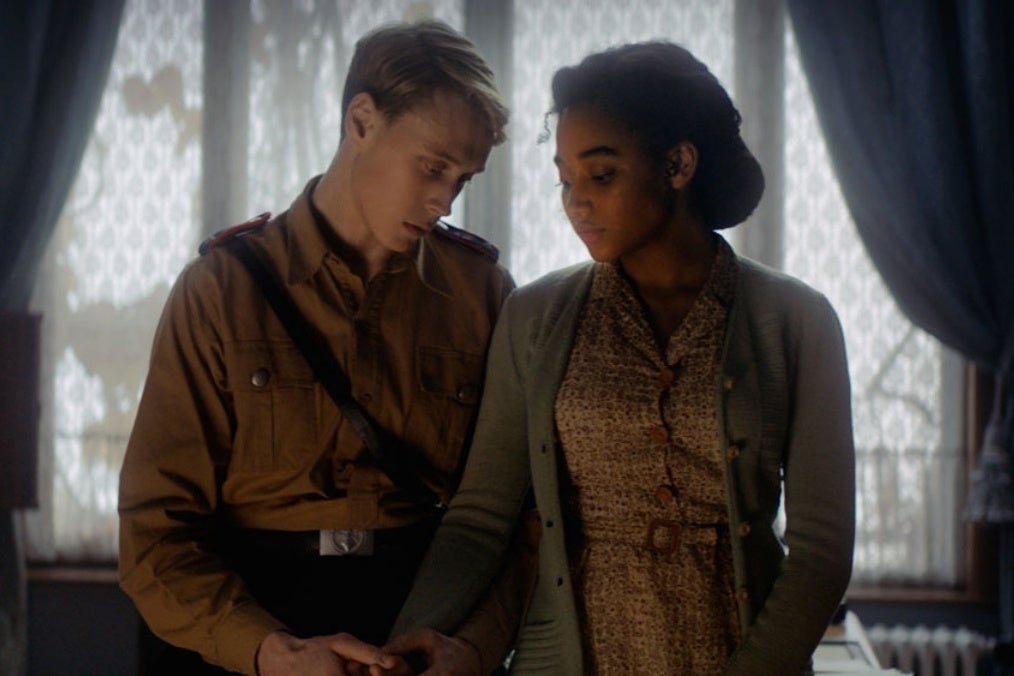George MacKay interview: ‘I didn’t realise there was a gender imbalance, because that imbalance served me’
The actor speaks to Alexandra Pollard about representation in the industry and his controversial new film Where Hands Touch, which has been accused of humanising Nazis


George MacKay is struggling. The 27-year-old actor – star of the LGBT+ comedy-drama Pride (2014) and survivalist tale Captain Fantastic (2016) – is trying to explain the moral impetus behind his career choices. But he is treading on eggshells.
“I’ve been intrigued by…” he begins. “Not intrigued, that patronises it.” He tries again. “I didn’t realise how many doors have opened to me… no, that sounds entitled.” Take three. “The most profound lessons I’ve had have been from people… ahh it’s tricky! I’m trying to think of a word that is ‘different’. Because the point is we’re not, everyone is just people. I think if we are more… ahh, I’m sorry, I really want to articulate this properly.”
It’s so surprising to hear an actor being sincere that it almost sounds evasive. It isn’t. Often, actors either wade into tricky topics without a thought, or shut them down completely for fear of saying the wrong thing. Not MacKay. He bravely ploughs on. “There’s a lot of stories that involve people that look and sound like me,” he says. “I’ve felt a confidence to at least try and put myself out there, because I saw myself represented in a lot of work growing up. Before people made a point of saying, ‘There wasn’t someone that I recognised myself in’, I hadn’t noticed that.”
He’s on a roll now. “You’re drawn to what you know,” he continues, “because there’s a safety in that, but it’s really not as scary a leap as people might think to hear other points of view. I think that’s probably the simplest way of putting it! Such great pleasure has come from learning about things outside of my immediate understanding of the world.”
Having grown up in London, MacKay has been acting professionally since the age of 11, when a talent scout visited his school (he attended the west London independent school The Harrodian) and cast him in 2003’s Peter Pan. There followed a bumpy few years – he was rejected from drama schools Rada and Lamda – but he found his feet again in 2013 when he played Saoirse Ronan’s cousin/lover in How I Live Now (the pair reportedly dated in real life for a while, too) and starred in Dexter Fletcher’s jukebox musical Sunshine on Leith. He’s been working solidly ever since, diligently choosing roles – like that of closeted teenager Joe in 2014’s Pride – that broaden his perspective on the world. He is clearly intensely thoughtful, in both conversation and in his career. But that didn’t stop him from unwittingly, and with the best of intentions, walking into a firestorm.
His new film Where Hands Touch, written and directed by A United Kingdom’s Amma Asante, has a startling subject matter. Set in Nazi Germany, it stars MacKay as Lutz, an (initially) enthusiastic member of the Hitler Youth, and Amandla Stenberg as Leyna, a biracial teenage girl with whom he falls in love. When Leyna is separated from her family and sent to a Nazi labour camp, Lutz is stationed as one of the guards there. MacKay and Stenberg are faultless, and the film asks some complex questions about ethics and identity – but it does so a little awkwardly.
Even before the film premiered at Toronto International Film Festival last year, it was divisive. “The idea of having a ‘romance’ set to this background is absurd in its own right,” read an article in Vulture. Upon its US release, things didn’t much improve. The New York Times called it a “disturbing misfire”, adding that “the stridently theatricalised violence is horrific only because it’s so abjectly manipulative”. But much of the brouhaha has come from commenters online who object to its premise.
“My understanding of the backlash was through Amma and friends on the production,” says MacKay, “because I don’t have social media. It’s fantastic that these discussions are being ignited – the only shame is that they were ignited rather intensely without [people] having seen the film that they were talking about. I think the uproar was premature, because there was no true context. Any discussion is good, but it shouldn’t stop people seeing the final piece that they’re discussing. It might shut a door to a room that is full of this conversation. It’s a shame that Amma took flack for something where people didn’t have a fully-rounded view of what they were giving her flack for. That might have hurt the film in its early stages, and frankly it hurt the film in its... yeah, it hurt the film. Before it had the chance to say its piece.”

Perhaps MacKay could say his piece. For instance, what would he say to publications like Vulture who objected to the film “humanising” Nazis? “The Nazis were humans,” he says. “A Nazi is not a different breed of person. We’ve separated the ideas of Nazis being like us, because we don’t like the idea of them being like us. I’m not saying that you and I are Nazis,” he adds hastily, “but it all comes from the same brain. It’s human thought which manages to warp an idea. They’re just people who wear certain clothes and walk under a certain banner, and ultimately we’re all the same.

Watch Apple TV+ free for 7 day
New subscribers only. £9.99/mo. after free trial. Plan auto-renews until cancelled.
ADVERTISEMENT. If you sign up to this service we will earn commission. This revenue helps to fund journalism across The Independent.

Watch Apple TV+ free for 7 day
New subscribers only. £9.99/mo. after free trial. Plan auto-renews until cancelled.
ADVERTISEMENT. If you sign up to this service we will earn commission. This revenue helps to fund journalism across The Independent.
“That’s what drew me to the project,” he continues, “is that we’re all sussing out, do we exist under a St George’s Cross? The Union Jack? The European Union? Do we need borders? Are you gay? Are you straight? Are you both? Do you need to have a label? Do you just love people? Trying to identify yourself gives you something to identify with, but that’s only positive if it allows you to feel comfortable in expressing yourself, because some of the time, by breaking yourself off, you cut yourself off from others… I’m sorry, I’m spiralling again.”
The film’s social implications have come to a head in the few years since they shot it. “Being a Nazi and the aspirations that come with that, and redefining your country, and taking ownership of what’s always been there, feels scarily relevant,” says MacKay. “It’s just in hindsight that [we see] how aspirations can become twisted if they’re at the expense of other people. I wouldn’t say we’re in a fanatical state, but we’re being forced to re-examine how we are and how things have always been. Especially in this industry, in terms of representation, whether it’s of people of colour or equality between genders or sexuality. I thought we weren’t prejudiced but actually, if you think about how many white blokes sit at the top of many companies, or stories even, you go, ‘Oh s**t, I didn’t realise there was an imbalance, because that imbalance served me’.”
It’s clearly important to MacKay that he be a part of correcting that imbalance – though he’s loath to take any credit. “A lot of big things, big decisions, huge events or changes, usually spark from individuals, or a small group, and that has that butterfly effect,” he says. “Again, I’m not claiming at all to have any effect like that, but I’m just trying to be open, in personal choices, to going, ‘Oh s**t, I didn’t realise how blinkered I’d been, because it’s facilitated what I’ve wanted to do.’”
Right now, MacKay is shooting a Sam Mendes-directed First World War film, alongside a cast that includes Benedict Cumberbatch and Colin Firth. But before that, he tells me, his last five jobs were directed by women. That includes Claire McCarthy’s Ophelia, a reimagining of Hamlet starring Star Wars’ Daisy Ridley. MacKay plays Hamlet, which ordinarily would mean taking centre-stage, but this time the focus is on the tragic heroine, so mistreated and underserved in Shakespeare’s original.
“You can talk the talk about something,” says MacKay, “and go, ‘Yeah absolutely I’m there for equality’, but the attitude is often, ‘Come and meet us at the top’, rather than, ‘OK, that means I’m gonna have to have less’, and you have to level with that. I think we should celebrate that forward momentum when it comes, even if it is long overdue. Say, ‘Well f**k it, let’s carry on’.”
MacKay is no longer stumbling around for the right words. “If I put my money where my mouth is,” he says, “I’ve got to make way.”
Where Hands Touch is released in UK cinemas on Friday
Join our commenting forum
Join thought-provoking conversations, follow other Independent readers and see their replies
Comments
Bookmark popover
Removed from bookmarks